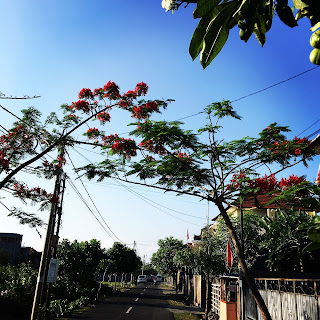Often enough--and far more often than I would have previously imagined--I will talk to folks in the MS community who have essentially been dumped by friends and even family members after being diagnosed with MS. They fade away, they simply disappear, they lose your phone number. They feel betrayed, burdened. That's right--they, the non-afflicted--are burdened by your burden.
This has been the most surprising discovery in my own journey with MS, and as regards the social mechanics of disease in general--this curious, unanticipated curse of incapacitation. I had imagined, in the healthy, supple bliss of naivete, that the common reaction of a friend, of a loved-one to adversity would be to draw closer. Here is a chance, after all, to show the fiber in character, the strength at the core of love. Perhaps my expectations were thus because I myself am thus. It seems natural to me. When adversity strikes, you move into the gap, you draw closer yet, you fill the role of love more fully.
How very astounding it has been to see the obverse in effect. It is hardly believable, and yet there it is. It seems at last that one's life, one's person, was not so important as what it could contribute to the other. You were not so much an individual, complete and worthy in yourself, as a byproduct, the value of which lay in what can be derived. In a narcissistic age, we say not 'in sickness and in health', but 'as long as', 'if', 'depending upon'. We say "No, I did not sign up for this".
A contract has been broken, a promise withdrawn. This was not the plan.
In a narcissistic age, in a Me-for-me age, we flee. There is a right way to do life, and a wrong way to do life; and disease is clearly the wrong way. It just didn't work out, honey. I'm sorry for you, but it's not my fault.
And, in fact, it may be the fault of the afflicted. Susan Sontag writes compellingly on this response in her book Illness as Metaphor. "Nothing is more punitive than to give a disease a meaning," she writes, "--that meaning being invariably a moralistic one." This is the disease as character flaw, as moral failing, as bad karma.
I remember my second wife once saying that my disease was surely a punishment for divorcing her. One feels sorry, of course, but not too sorry, because, after all, you brought this on yourself.
There are a thousand justifications, a thousand dodges--or perhaps worse yet, there is none at all, for the matter doesn't seem important enough to require an excuse.
Just today I talked to a man named Lloyd, via an internet app. He had called a couple of old friends, he wrote. They told him that they were very busy right now and would call back later. One of those types of 'later' that never come.
"I'm too young for this," Lloyd's wife of 38 years told him. "I want to have fun. I'm not going to be tied down to a sick husband."
I didn't sign up for this.
Nor did we, of course. But that's no excuse.
I loved my brother like my own life. When he got sick, I loved him even more. Were it possible, were it an option, I would have gone to the grave for him--and come back again! For I was strong and able and healthy and he was weak because of the cancer.
I would do the same for you, my sons, my daughters, my wives, my friends. I am a breath away, a thought away, a letter away, a phone call away. And yet for you, now, I have become silence, invisibility. I am no longer here. I feel myself here, and yet I am not here.
Not long ago, I saw a little comic on the internet. An old man had brought his telephone into the shop for repair. The clerk at the desk said, "There's nothing at all wrong with your phone, sir." And the old man, somber, disappointed, answered "But then … why does it never ring?"
If I'm laden at all,
I'm laden with sadness
That everyone's heart
Isn't filled with the gladness
Of love for one another
--The Hollies, He Ain't Heavy, He's My Brother





